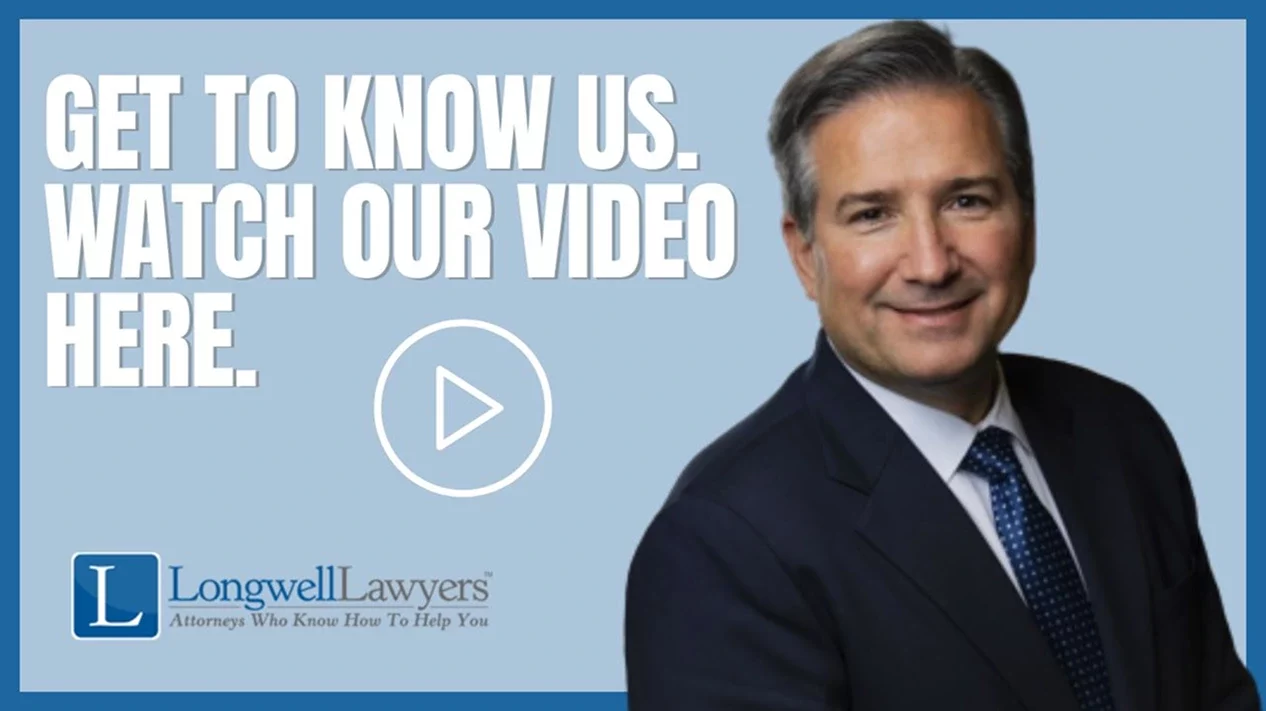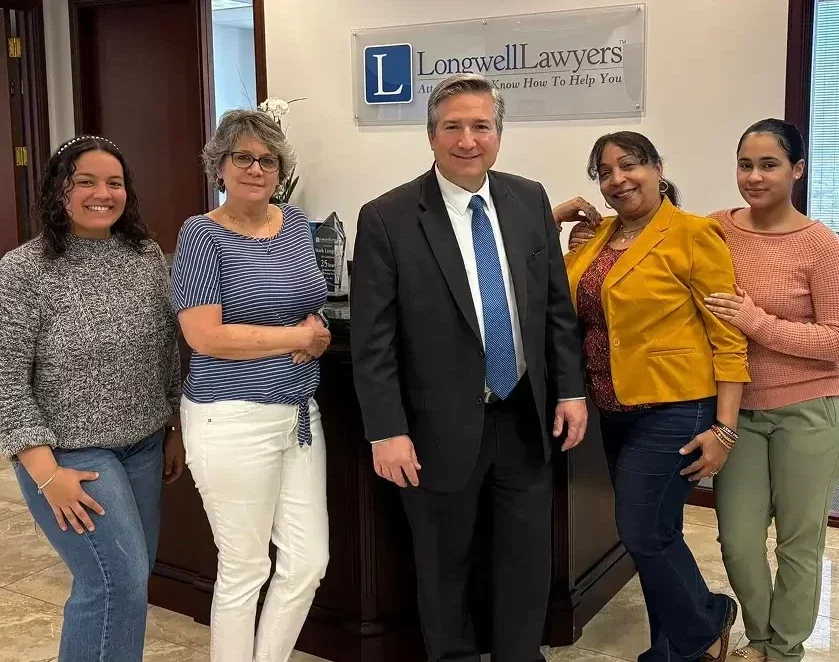Orlando Violation of Probation Attorneys
CONTACT Our orlando vop defense attorneys today
Violations of probation and violations of community control need the urgent attention of a skilled attorney. Most times, Defendants are stuck in jail, not entitled to a bond, and need quick resolution. That is why these types of cases require serious representation. Longwell Lawyers has the knowledge, experience, strategic approach, and skill necessary to provide you with the serious representation required to respond to these types of allegations. Longwell Lawyers was founded in 1993, by Mark N. Longwell, who is a top-rated former prosecutor.
What Is Probation? What Is Community Control?
When sentencing a defendant, Judges have several options. One of those options is placing an “Offender” on probation or community control.
- Probation, at its most basic level, is a period of government supervision in lieu of incarceration.
- Community Control is a more stringent form of probation that is often compared to Home Confinement or House Arrest.
Common Conditions of Probation
During either type of government supervision, the “Offender” agrees to abide by certain “conditions.” These conditions typically include regular meetings with a government agent (a “Probation Officer” or a “Community Control Officer”), random drug testing, taking classes, doing community service hours, etc.
Certain types of offenses carry mandatory “special” conditions of probation in addition to the standard conditions. The most common offenses that carry mandatory special conditions of probation are DUIs and Sex Offenses.
Depending upon the number of prior DUI convictions and/or Breath Level, DUI Probation typically includes mandatory:
- Fine
- Vehicle Impoundment
- Ignition Interlock Device
- Community Service
- Substance Abuse Counseling
- Classes
Depending upon the type of sex offense and/or the existence/age of the victim, Sex Offender Probation typically includes mandatory:
- Curfew
- Restrictions on living within 1,000 feet of a place where children congregate
- Treatment
- Prohibition on contact with the victim
- Prohibition of contact with anyone under the age of 18
- Prohibition of working or volunteering at a place where children congregate
- Prohibition on possessing or viewing pornographic material that is relevant to the documented deviant behavior.
- Submitting to DNA sample banking with FLDE
- Victim restitution
- Submission to warrantless searches of probationer’s person, residence, and/or vehicle
- Submission to annual polygraph examinations
- Maintaining a driving log
- Prohibition of maintaining a PO Box
- Submission to HIV testing
- Electronic Monitoring
- Prohibition of internet access without prior court approval
- Prohibition on visiting schools, childcare facilities, parks or playgrounds
- Prohibition on distributing candy on Halloween
Judges may impose other special conditions depending upon the charged offense and the circumstances of each case.
What Is a VOP? What Is a VOCC?
If the government believes that an Offender has willfully and substantially violated his or her conditions of supervision, it can seek to revoke a person’s probation/community control and seek to send the Offender to jail for up to the maximum penalty of their original charge.
This type of criminal case is called a “Violation of Probation” (VOP) or a “Violation of Community Control” (VOCC).
Can I Get Bond on a VOP/VOCC?
The Government seeks to revoke probation or community control by filing an “Affidavit of Violation of Probation/Community Control.” If a Judge determines that the affidavit establishes probable cause to believe that a probationer has, in fact, violated his/her terms of supervision, the judge has two options:
- Issue a Notice to Appear for a court date.
- Issue a warrant for the arrest of the Offender.
If a “Warrant for Violation of Probation/Community Control” is issued, this warrant will have No Bond and, once arrested, the offender is presumed to be ineligible for bond. This means that, unlike being charged with a new crime, someone who is accused of violating their probation or community control will likely remain incarcerated until their alleged violation has been resolved with either a plea bargain or an evidentiary hearing (i.e. mini-trial) to determine whether probation/community control has, in fact, been violated.
Nevertheless, judges are entrusted with the discretion, in certain cases, to grant a bond, even though they are not required to give anyone accused of a VOP/VOCC, bond.
To maximize the potential of getting a bond, having experienced, expert, local attorneys behind you is paramount. Longwell Lawyers has the knowledge, experience, strategic approach, and skill necessary to provide you with the serious representation required to respond to a VOP or VOCC charge. Longwell Lawyers was founded in 1993 by Mark N. Longwell, who is a top-rated former prosecutor. Our highly skilled team of attorneys and staff is led by Mr. Longwell and top-rated attorney Benjamin L. Jones, who is a Florida Bar Board Certified Criminal Trial Expert.
What Does it Mean if a Judge Says That I am “Anti-Murder” or a “Violent Felony Offender of Special Concern?”
This discretion to grant bond on VOP or VOCC cases is, however, limited by Florida’s “Anti-Murder Act.”
This act attempts to distinguish among various types of offenders and designate some as possessing an inherently greater risk to re-offend or violate the conditions of their supervision. So, to incentivize these “Violent Felony Offenders of Special Concern” to take extra care NOT to violate the conditions of their supervision, this act make it extremely hard for a judge to grant them bond.
To this end, an offender who has been designated as a “Violent Felony Offender of Special Concern” is not allowed to be released on bond unless the alleged probation violation is solely for failure to pay a monetary obligation (like fines, court costs, costs of supervision, or restitution). Any other technical or “new law” violation requires the offender to remain in jail until their violation of probation case is resolved.
What Does the Government Have to Prove?
When attempting to prove that someone committed a crime, the government must unanimously convince a jury of a Defendant’s guilty “beyond a reasonable doubt.” Unfortunately, the government is held to a much lower standard when it is attempting to prove that someone violated their probation or community control – it only has to convince a judge that an offender more likely than not (i.e. “by a preponderance of the evidence”) violated the terms of his/her supervision.
Typical Defenses to a VOP or VOCC
The Violation was Not Willful
Prosecutors must move that an offender intended to violate his or her probation. Mistakes happen. Not all violations are willful. No Contact orders can be violated unintentionally. Nutritional Supplements can contain ingredients that the offender did not know were controlled substances. Appointments can be legitimately forgotten. Fines go unpaid so that a probationer can buy groceries. Any number of things can happen that make a violation of probation not “willful.”
Violation Did Not Occur
Rather than arguing that a violation did happen, but it was unintentional, your lawyer can argue that the alleged violation simply did not happen. Perhaps the drug test produced a false positive. Perhaps record keeping errors occurred and community service was actually completed. Perhaps an alleged victim is using a no contact order as both a “sword and a shield.” If it didn’t happen, it can’t form the basis for a violation of probation/community control.
What Happens If I Am Found to Have Violated My Probation/Community Control?
If a Violation of Probation or Community Control is proven, the Court has several options. It can impose any combination of the following options:
- Reinstate probation/community control and allow the probationer to continue serving their initial term of supervision.
- Extend probation/community control and force the probationer to be subjected to government supervision for longer than initially planned.
- Add conditions to probation/community control (e.g. adding community service hours, adding a fine, increasing the frequency of drug testing or the frequency of reporting requirements, curfew, etc.).
- Revoke probation/Community Control and take no further action (i.e. deem probation/community control completed).
- Revoke probation/Community Control and impose a period of incarceration.
- Step Community Control down to Probation.
The maximum period of Probation/Community Control varies depending upon what charge resulted in a probationary sentence. See below for good guidance:
| Offense Level | Max Probation |
| 2nd Degree Misdemeanor | 6 months |
| 1st Degree Misdemeanor | 1 years |
| 3rd Degree Felony | 5 years |
| 2nd Degree Felony | 15 years |
| 1st Degree Felony | 30 years |
| Capital Felony | Life |
What is a “Danger Hearing?”
If the Court believes that an offender qualifies as a “Violent Felony Offender of Special Concern” (see above) and, after an evidentiary hearing, it has found that the Offender violated the terms of his/her supervision, the Court is required to revoke supervision and send the offender to jail or prison, unless it makes a written finding that the offender does not pose a danger to the community. In making this determination, the Court must follow the procedures laid out in Florida Statute 948.06(8)(e). This procedure is commonly referred to as a “Danger Hearing.”

